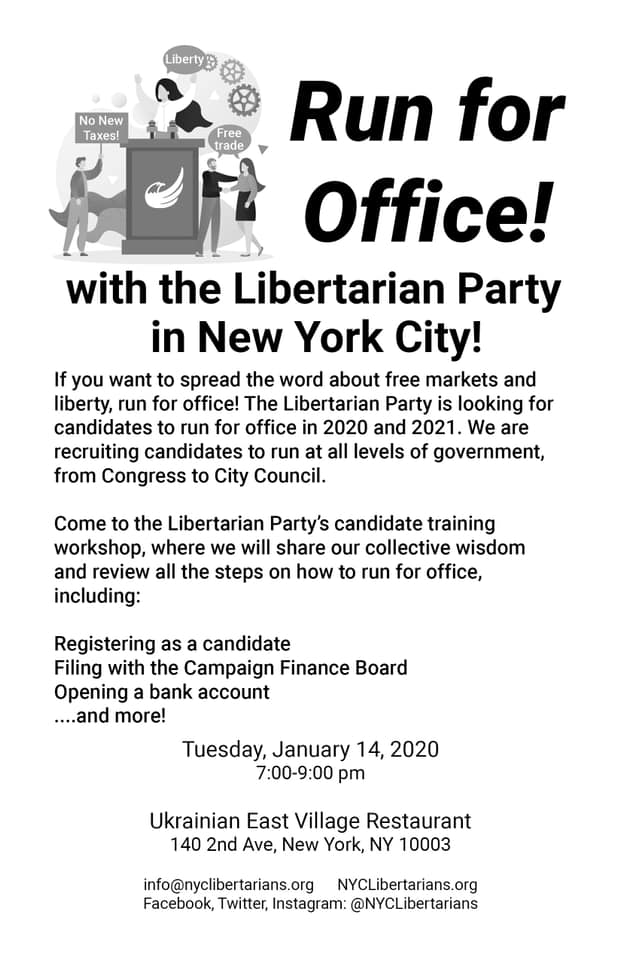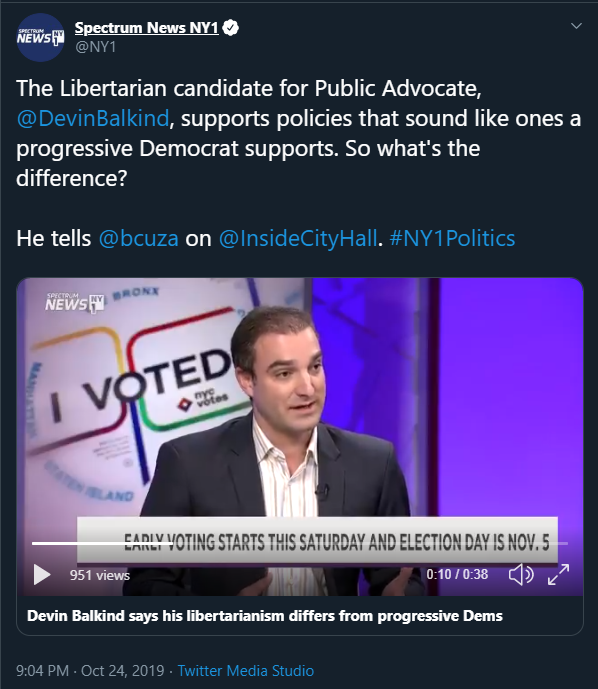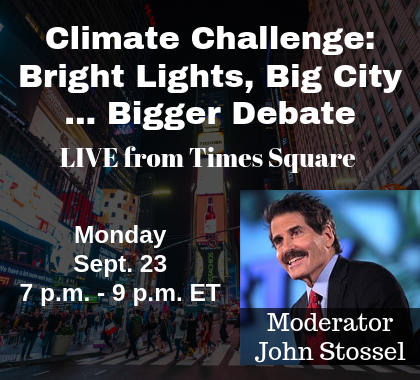Libertarian Party of Queens General Meeting 11/21/2019
By QueensLP |
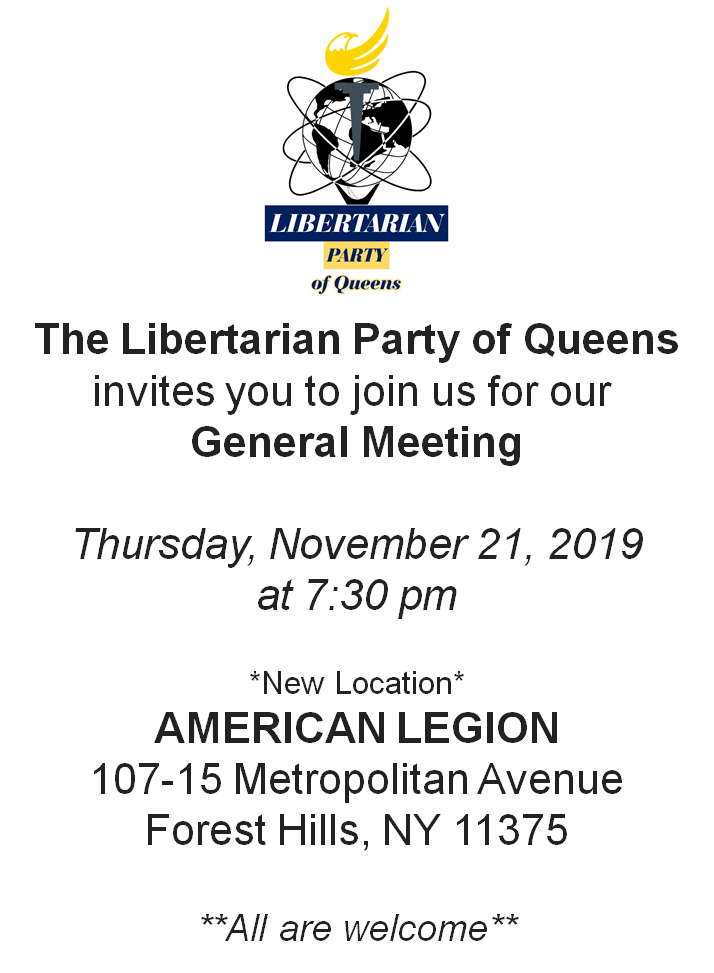
LP Everywhere Marketing Contest (#LPeverywhere)
By QueensLP |
The Libertarian candidate for Public Advocate, Devin Balkind, supports policies that sound like ones a progressive Democrat supports. So what’s the difference?
By QueensLP |
5 Solutions the Public Advocate Should Deliver for New York City
By QueensLP |
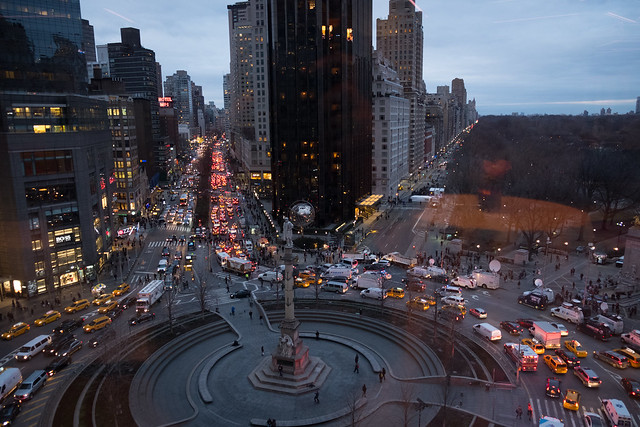
This post and image originally appeared July 23rd on Gotham Gazette.
The New York City Public Advocate is a poorly defined position that, over its 30 years of existence, has often been used to advance the political interests and status of career politicians. I’m running for Public Advocate because I want to do something very different with the office: turn it into a “startup” working in the public interest to deliver real products and services that improve New Yorkers’ lives and helps under-resourced civil servants modernize our city’s government.
I’ll do this by delivering five noncontroversial “solutions” that I’ve outlined in Gotham Gazette columns over the last few years: 1) strengthening our social safety net; 2) kickstarting technology-enabled government reform; 3) improving civic engagement processes; 4) facilitating metro-regional coordination; and 5) producting websites that help New Yorkers see and understand their government.
1) A Searchable Safety Net
Politicians talk constantly about our city’s safety net, but where is it? New York City doesn’t have what almost every major city in the country does — a “211” system that organizes government and nonprofit health, human, and social service information and makes it available to the public through a website and 2-1-1 phone hotline.
Everyday thousands of city and nonprofit staff are duplicating work and struggling to keep their own resource directories up-to-date, recognizing that the availability of this information is the difference between a New Yorker accessing the critical health and social services they need or needlessly suffering without it.
No nonprofit or government agency has taken it upon themselves to solve this citywide problem — but the Public Advocate can and should.
As Public Advocate, I will create an open source directory of all available health, human, and social services available in New York City, and make that information accessible on the web, via an app, by phone, and via API to partner organizations all over the city.
2) Digital Transformation Team
New York City’s bureaucracies were designed in an era of telegrams, switchboards, and printed memos. It’s past time for an upgrade. And the best way to get one is by helping city agencies create their own Digital Service Organizations (DSOs). These groups use open source technology and agile production techniques to bring government services and the bureaucracies that provide them into the modern era.
The first DSO was the UK’s Government Digital Service. Founded in 2011, it has driven a digital transformation in the UK government — greatly improving services and reducing annual operations’ costs by over a billion pounds per year. We could get similar results in New York City, but someone needs to lead. That someone should be the Public Advocate.
As Public Advocate, I will work to ensure that New Yorkers get faster, better, and cheaper government services by working with civil servants and their agencies to train, support, and network them together as we create DSOs throughout our city’s various government agencies.
3) Civic Engagement Oversight
In November 2018 New Yorkers voted overwhelmingly to establish a “Civic Engagement Commission” (CEC) to “enhance civic participation.” We need to make sure that the CEC advances the interests of the public, rather than those of politicians.
As the voice of New Yorkers, the Public Advocate is in the perfect position to provide oversight and help improve New York City government’s civic participation programs. We can do this by providing New Yorkers with clear information about the city’s existing public participation processes, which agencies are doing them, who leads them, what metrics they use to determine success, and how those programs could be improved using best practices (which I’ve honed over the past decade from working around the world).
Then, we will establish an “Engagement Lab” that works with individual civil servants and government agencies to support them as they establish and improve public engagement processes.
4) A Regional Organizing Project
New York City is the largest city in the United States with more than 8.5 million residents, but we’re also the beating heart of the nation’s largest “metropolitan area,” with a population of over 23 million spanning four states and 30 counties.
Our city’s ability to tackle some of our most important challenges such as housing, transit, energy, pollution, climate resilience, and more all require regional solutions. But systemic coordination among the 30 counties and four states in the New York Metropolitan Area doesn’t happen efficiently. In fact, it’s hardly happening at all. Our current methods for regional coordination are woefully inadequate, relying on a hodgepodge of nonprofits, commissions, and multi-government “authorities” that each work on their own sliver of these massive and deeply interconnected challenges.
Sometimes these groups compete; sometimes massive areas of work go completely uncoordinated; and the public is hardly aware these groups exist or that they are charged with making such important decisions. Unfortunately, we experience this coordination failure everyday — crumbling subway systems; out-of-control infrastructure construction costs; our communities’ unmitigated vulnerability to extreme weather are all evidence of this massive problem.
That’s why, as Public Advocate, I’ll launch an online metro-regional coordination hub that aggregates and organizes information from the various coordination bodies, produces events that bring these bodies together, and develops a 10-year plan for improving metro-regional governance.
5) An Open Government Interface
Thanks to the city’s innovative open data law, city agencies are publishing a tremendous amount of information to the city’s open data portal, but finding the right information can get a little tricky. Professional researchers and large businesses have the resources needed to make sense of city data, but smaller businesses, journalists, and the vast majority of residents often do not.
Fortunately, the city created the Commission on Public Information and Communication (COPIC) with a charter mandate to “educate the public about the availability and potential usefulness of city produced or maintained information and assist the public in obtaining access to such information.” Unfortunately, information on COPIC is hard to find. It seems to lack an official website or an active Twitter. Go figure!
As Public Advocate, I will reconvene COPIC and work with that body to create a unified interface for information about city agencies, such as their budgets, expenses, capital projects, social services, performance indicators, and more. In the words of the original OpenCongress.org web project, we’ll build “the website [the city] should have made for itself.”
Successful implementation of the five solutions described above requires a focused vision, a motivated team with the right skills, and the resources — financial and political — that come with the Public Advocate’s office. As a technologist that helps nonprofits, governments, and startups build information systems to achieve specific goals, I know how to get this work done. As a concerned New Yorker dedicated to giving this city the government it deserves, I’m confident I will — whether I’m elected Public Advocate or not.
***
Devin Balkind is a nonprofit executive, civic technologist, and startup advisor running for Public Advocate as the Libertarian Party nominee. On Twitter @DevinBalkind.
(photo; Edwin J. Torres/Mayor’s Office)
reprinted from https://votedevin.com/2019/09/25/5-solutions-the-public-advocate-should-deliver-for-new-york-city/ by permission from author, September 25, 2019
Climate Challenge: Bright Lights, Big City… Bigger Debate
By QueensLP |
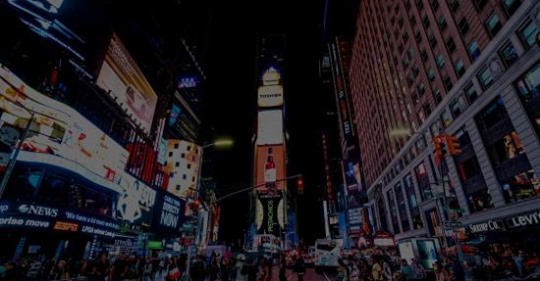
Moderated by John Stossel
New York Marriott Marquis, Manhattan Ballroom
1535 Broadway, New York, NY 10036
Libertarian Party of Queens Open House – Tuesday, September 17, 2019
By QueensLP |
Now that the New York State Libertarian Party has ballot access, we are pleased to announce the establishment of the Libertarian Party of Queens County. Our mission is to elect Libertarian candidates in 2020 to New York City and State offices.
Our Open House will be on Tuesday, September 17, 2019, at 7pm at Queens College, Kiely Hall, Room 264.
Guest Speaker: Devin Balkind, Libertarian Candidate for NYC Public Advocate
Meet the leadership, the candidates, and find out how you can help. Please join us and support our cause for freedom!
For more information and future events, please check out our website, e-mail us, and follow us on social media at:
Website: www.queenslp.org
E-mail: lpqueenscounty@gmail.com
Twitter: @lpqueens
Facebook: www.facebook.com/QueensLP
Libertarians celebrate 99 years of the 19th Amendment, women’s right to vote
By QueensLP |
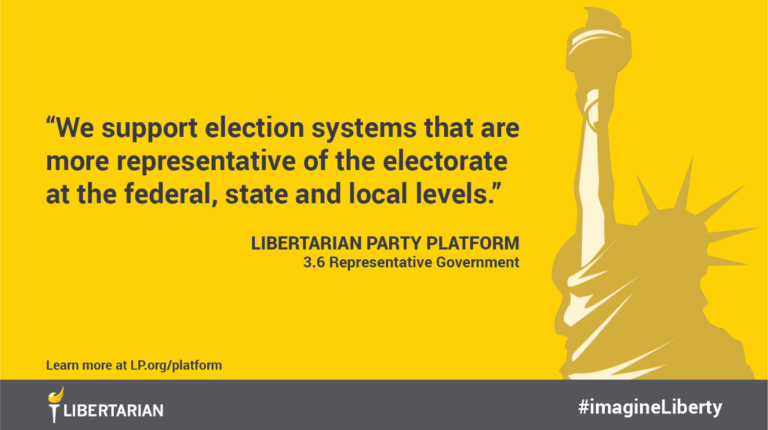
originally posted in the LNC site
It has been 99 years since the rights of women to political participation and representation were recognized by the passage of the 19th Amendment, and the world is a remarkably different place. There’s still a long way to go, however, to ensure that all individual rights are recognized and protected.
“When asked, many Americans will cite the freedom of speech as one of the most important natural rights that must be recognized by any country,” said Libertarian National Committee Secretary Caryn Ann Harlos. “Yet, until 100 years ago, the cornerstone of free speech — the right of political free speech — was fundamentally denied by the United States, with rare pockets of limited exceptions in several states, to one group of people based only upon the fact that they were women. This is important to remember and honor so that we do not repeat this ignorance in the areas of other fundamental rights.”
The passage of the 19th Amendment reminds us that we’re not stuck with abusive laws and policies. It’s within our power to implement real political change, rooting out every form of oppression and protecting all of your rights all of the time.
“I am a Libertarian because I believe in the fundamental inherent dignity and rights of all people — that they have the right to fully participate in all aspects of life subject only to their choice and avoidance of infringing upon the equal right of others to do the same,” Harlos said. “In the area of political speech, when that is denied, violence and oppression is inevitable. In the area of the full social and economic equality of women, this is a day to remember how far we have come and to look with optimism towards the future. Radical change is possible. It has happened before. A future free of all aggression against the rights of all people can happen. I believe it will.”
The importance of a 3rd party alternative in 2020 – by Kenneth Mulvena
By QueensLP |
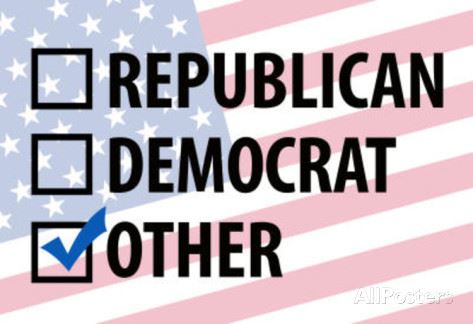
Unless you are politically feared, you will not be politically respected. Understanding this fact about politics is crucial to planning the realistic and critical goals that third parties in our democratic process need to have in order to play an impactful role in influencing and eventually shaping American Politics and national policy. While most of America is still clueless as to what Libertarians stand for, there is a common feeling of being wholly disenfranchised by the current state of American Politics.
Libertarians and the American public also share a bleak outlook of the future of the United States if the status quo remains. Another result of this disenfranchisement is that now more of the American voting public than ever before are disassociating from the two major parties and their leadership, rhetoric, and goals. Meanwhile, the party leadership, rhetoric, and goals of Republicans and Democrats continue to further mimic the interactions of rival street gangs rather than ideological political opponents. Libertarians and the American public see Washington as a broken out-of-touch corrupt cesspool that only benefits top political benefactors. In a time when congressional approval is at an all-time low and re-election rates are at an all-time high, the American people are desperate for a truly alternative political movement to instill some fear into politicians and a new perspective into DC. The sad truth is that the biased design of the major political parties’ primary systems will almost make it impossible for an innovative and appealing candidate to win the presidency in 2020. The result of this election will be a public opinion outcome similar to the one we witnessed in 2016 in which most Americans hold record-low opinions of both major party candidates. We will again be trapped with only two bad options, and this cycle of political discontent will continue until American politics spirals into full turmoil. While some might take some pleasure in seeing the demise of a damaging system, this process may involve mass suffering, along with the destruction of American fundamental liberties, civility, and peace. A result of this future would mean seeing many of our loved ones suffer horribly or even die as a result of the civil war.
Libertarians have a better answer than suffering and death: we should stop this tragedy from happening or else we fail to even live up to our fundamental principles of trying to create a fairer and more prosperous world for everybody.
Washington needs the fresh and compelling voice of a libertarian president or at least a libertarian candidate in the mainstream. Do I think the Libertarian party or any other third party has a viable chance at winning the Presidency in 2020? No, but a third party could receive enough votes to heavily influence federal policy over the next decade.
I previously stated that unless you are politically feared you will not be politically respected. This means that you must affect those in power and their ability to implement their legislative goals. If you have no power, they will not care about your ideas. If a third party could amount to a sizable and significant amount of the popular vote (between 8 and 20 percent), in order to throw the entire election, particularly in battleground states, into complete chaos, while having a sizable role in affecting the outcome of the election or how the winner is chosen, it will be a significant victory for that party and their platform, regardless of the winner.
This would show both current major parties that there is now a sizeable voting block that will no longer blindly following the Republicans and Democrats. Instead, politically speaking, it would finally and rightfully send a powerful message to the Washington establishment that if their policies of reckless spending, corruption, and government overreach keep continuing they will finally be on the path to the dustbin of history. It will force them to adopt proposals of this popular 3rd party or risk losing the electorate/future elections.
You need only look to this country’s past to see this in practice. American politics, particularly in the 20th century, is filled with examples of third parties winning a sizable amount of the popular vote, resulting in the major parties adopting many of the issues that the third party popularized. Whether it be in 1912 with the bull moose party, or particularly Ross Perot’s ‘92 Presidential campaign a significant 3rd party candidate getting a noticeable amount of the popular vote directly led to that political era’s agenda being profoundly shaped by the policies of that popular 3rd party candidate, due to both major parties being forced to reach out to those voters.
Look at how much the Green New Deal, a policy initially proposed and popularized by Jill Stein and The Green Party back in 2016, is now playing a significant role in the discussion and platform of many 2020 Democratic candidates. With an emphasis on a Green New Deal, a case can be made that the 2020 Democratic Party platform will be more influenced by Jill Stein than the previous Democratic nominee Hillary Clinton.
2020 is the best chance a 3rd party and the liberty movement has at making sure the values of small Constitutional government are protected. American politics in the 21st century so far has been defined by massive deficit spending, civil liberty violations, endless wars, and foreign intervention, the continuation of failed initiatives like the war on drugs, and an Orwellian surveillance state emerging; all of which have been dramatically made worse by the current Presidential administration.
It is clear that neither of the major parties is prioritizing individual freedom. A strong 2020 Libertarian candidate may be our last chance at stopping this dystopian authoritarian nightmare from coming to fruition without causing a revolution, mass chaos, and misery. Change is necessary in order to ensure the flame of liberty will continue with a strong and forceful presence to define the next decade of American Politics.
Press Release: Queens Libertarian Party is looking for Potential Candidates for the 2019 Queens District Attorney Election
By QueensLP |
Queens, NY, July 10th, 2019 – The Libertarian Party Of Queens is excited to announce that we are actively looking for a candidate to have our endorsement and support in the upcoming Queens DA general election scheduled for later this year in November. The requirement to be our candidate includes a Legal Degree, Legal Experience, and a passion to advance and defend Libertarian Beliefs and Principals. People who meet these requirements should contact us at lpqueenscounty@gmail.com with Queens DA Candidacy in the subject line, and our board will evaluate your credentials and set up and appointment for either an in-person or over the phone interview to see if you are what we are looking for in our nominee. We look forward to hear from all office-seekers.
